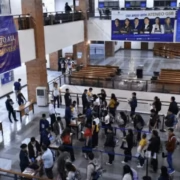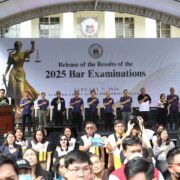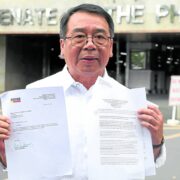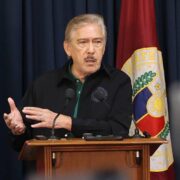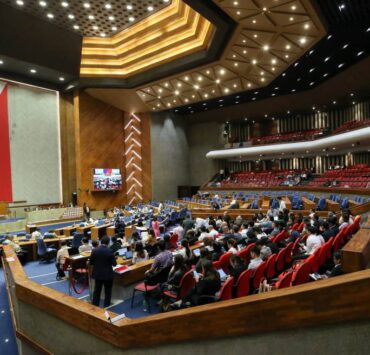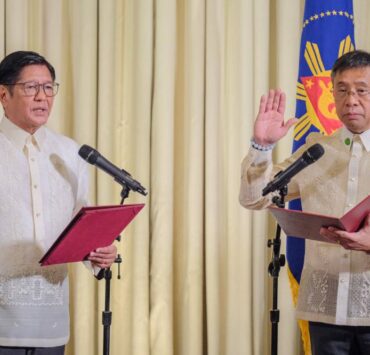ICC counsel disputes Du30 arguments to dismiss case
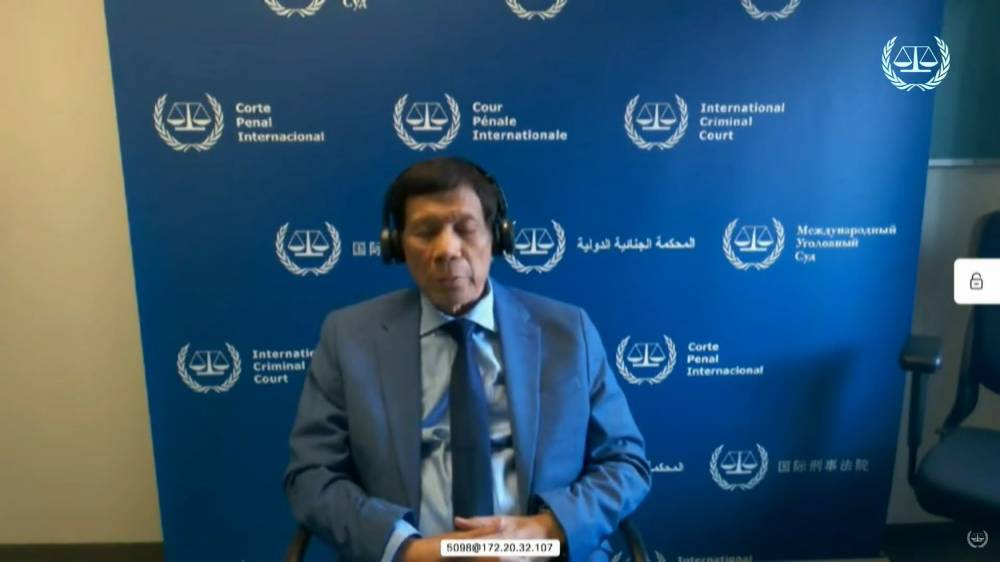
Drug war victims have asked a pretrial chamber of the International Criminal Court (ICC) to deny Rodrigo Duterte’s petition to dismiss his case—fearing they have no other legal recourse if the ICC proceedings are terminated and the former Philippine president is allowed to return home without trial.
Paolina Massidda, principal counsel of the Office of Public Counsel for Victims (OPCV), relayed their “observations” on the defense team’s challenge on May 1 questioning the ICC’s jurisdiction over the “crimes against humanity of murder” case filed against Duterte.
In her 27-page response to Duterte’s position, she said Articles 12 and 127 of the Rome Statute—which the defense cited as the relevant provisions in its challenge—were otherwise “crystal clear” in illustrating the point that the Philippines’ 2018 withdrawal from the Statute had no legal effect, since the ICC prosecutor had already begun that year a preliminary examination of the charges against Duterte before the country’s exit became effective a year later.
Purpose defeated
Duterte’s lawyers as well as his supporters have made it a consistent position that his withdrawal of the Philippines from the Rome Statute—the treaty binding its member nations to the ICC—already denies the court any jurisdiction over the country.
Massidda said “Any other interpretation would defeat the whole object and purpose of the Statute and, in particular, the clear terms of Articles 12 and 127 will be completely disregarded, if a state which has withdrawn from the Statute is further allowed to impede the exercise of the jurisdiction of the court which it had voluntarily accepted.”
“In other words, most serious crimes of concern to the international community as a whole will go unpunished and the effective prosecution of atrocities committed against countless victims will never materialize,” she added.
Preconditions ‘not met’
The defense team led by British Israeli lawyer Nicholas Kaufman argued that the provisions it raised made the ICC’s jurisdiction highly contentious.
Article 12 sets the “preconditions to the exercise of [ICC] jurisdiction”—including its acceptance by member states as well as countries that are not signatories to the Rome Statute—while Article 127 of that treaty defines the duties of both the ICC and the member state that has withdrawn from and thus is no longer a member of the Statute.
According to Duterte’s lawyers, the precondition of a nonmember state having to accept the ICC’s jurisdiction was “not met” in the case of his arrest.
But Massidda countered that the Philippine government still allowed Duterte’s arrest on March 11 and subsequent transfer to The Hague.
Matters ‘prior to withdrawal’
She said this was “irrefutable proof…that the Republic of the Philippines does consider that the court can still exercise its jurisdiction over the crimes committed in its territory as described in the warrant of arrest against Mr. Duterte.”
Article 127, meanwhile, states further that a country that has withdrawn from the Statute will not “prejudice” any “matter which was already under consideration by the court prior to the [withdrawal].”
Duterte’s team said Article 127 was “irrelevant and inapplicable” because the term “court” refers only to a “judicial organ” excluding the prosecutor.
It also insisted that the clause “under consideration by the court” does not cover the ICC’s preliminary examination on the charges against Duterte before the Philippines’ withdrawal from the Statute.
‘Impunity gap’
Massidda said these arguments were “incorrect and misleading.” She also maintained that the said provisions include “all stages of the proceedings” as a court matter and the Office of the Prosecutor (OTP) as an organ of the court.
She noted further that the framers of the Statute themselves had even intended to close an “impunity gap,” because they were “acutely aware of the risk that states may intentionally avoid investigations and prosecutions” simply by way of a withdrawal from the Statute.
“In conclusion, based on the determinative interpretation of Articles 12 and 127 of the Statute, the preliminary examination conducted by the (OTP)… must be considered as ‘a matter’ that was already under consideration of the court prior to the date on which the state’s withdrawal became effective, and thus the court may exercise its jurisdiction over the case against Duterte,” Massidda said.
Threats still there
She also emphasized in her response that relatives of fatalities in Duterte’s drug war could again face threats from both Duterte and his supporters once his case is thrown out over an “overly restrictive reading of the Statute.”


